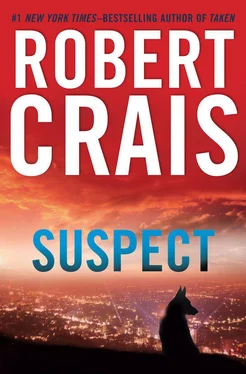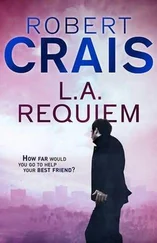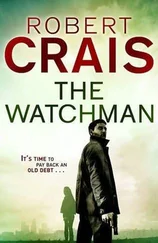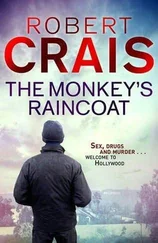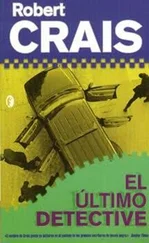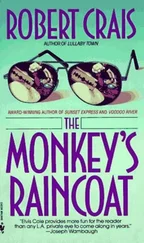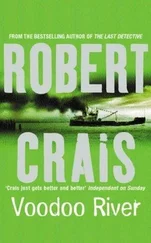for Gregg Hurwitz
friend, dog man, writer.
and his beautiful pack,
Delinah, Rosie, Natalie,
and Simba.
Maggie stared at Pete with rapt, undivided focus. His dark face was smiling, his hand was hidden inside the heavy green bulk of his USMC flak jacket, and he cooed to her in the high-pitched, squeaky voice she loved.
“That’s a good girl, Maggie. You’re the best girl ever. You know that, baby girl Marine?”
Maggie was an eighty-five-pound black-and-tan German shepherd dog. She was three years old, and her full name was Military Working Dog (MWD) Maggie T415, the T415 being tattooed on the inside of her left ear. Corporal Pete Gibbs was her handler. He had been hers and she had been his since they met at Camp Pendleton one and a half years ago. They were now halfway through their second deployment as a patrol and explosives-detection team in the Islamic Republic of Afghanistan.
Pete cooed, “We good to go, baby girl? You gonna find the bad thing for daddy? You ready to work?”
Maggie’s tail thumped the dirt hard. This was a game they played often, so Maggie knew what was coming, and lived for the joy of this moment.
Al-Jabar Province, 0840 hours, the Republic of Afghanistan. It was 109 degrees, and would reach 120.
The desert sun beat hard on Maggie’s thick fur as a dozen Marines unassed three Humvees and formed up in a loose column twenty meters behind her. Maggie knew the other Marines, but they meant little to her. Pete was relaxed around them, so Maggie tolerated them, but only when Pete was near. They were familiar, but not pack. Pete was pack. Pete was hers. Maggie and Pete ate together, slept together, and played together 24/7. She loved, adored, protected, defended, and felt lost without him. When the other Marines came too close, Maggie warned them with a low growl. She had been bred to guard and protect what was hers, and Pete was hers. They were pack.
Now, this moment, Maggie was totally focused on Pete. Nothing else mattered or existed. There was only Pete, and Maggie’s joyful expectation of the game they were about to play, when a voice called out behind her.
“Yo, Pete. We’re good, bro. Roll out.”
Pete glanced at the other humans, then smiled wider at Maggie.
“Wanna see it, girl? Wanna see what I got?”
Pete took a fluorescent green ball from beneath his flak jacket.
Maggie’s eyes locked on the ball, and she stood like a shot, up on all fours, whining for Pete to throw it. Maggie lived to chase the green ball. It was their favorite toy and her favorite game. Pete would throw it hard and far, and Maggie would power after it, chasing it down with a feeling of purpose and bliss; catch it, clamp it tight in her jaws, and proudly bring it back, where Pete was always waiting to shower her with love and approval. Chasing the green ball was her absolute favorite game, but now Pete showed her the ball only as a promise of the bliss to come. Maggie knew the routine, and was cool with it. If she found the smells Pete had taught her to find, she would be rewarded with the ball. That was their game. She must find the right smells.
Pete tucked the ball back under his flak, and his voice changed from squeaky to firm. He was alpha, and now he spoke in his alpha voice.
“Show me what you got, Maggie Marine. Find the bad things. Seek, seek, seek.”
Seek seek seek.
Maggie was trained as a patrol dog and an explosives-detection dog, making her a dual-purpose dog. She would attack on command, chase and apprehend fleeing persons, and was stellar at crowd control, but her primary job was sniffing out caches of ammunition, artillery ordnance, and roadside bombs. Improvised Explosive Devices. IEDs. The Afghan insurgents’ weapon of choice.
Maggie did not know what an IED was, but this was not necessary. She had been taught to recognize the eleven most popular explosive components insurgents used in their bombs, including ammonium nitrate, detonator cord, potassium chlorate, nitrocellulose, C-4, and RDX. She did not know these things could kill her, but this did not matter, either. She sought them for Pete because pleasing Pete meant everything. If Pete was happy, Maggie was happy. They were a pack of two, and Pete was her alpha. He would throw the green ball.
At Pete’s command, Maggie trotted to the end of her leash, which was tethered to a metal D-ring on Pete’s harness. She knew exactly what Pete expected because Pete had trained her, and they had performed this same mission hundreds of times. Their job was to walk along the road twenty meters ahead of the Marines to find the IEDs. They went first, and their lives and the lives of the Marines behind depended on Maggie’s nose.
Maggie swung her head from side to side, checking the high scents first, then dipped her head to taste the smells close to the ground. The humans behind her might be able to identify five or six distinct smells if they concentrated, but Maggie’s long shepherd’s nose gave her an olfactory picture of the world no human could comprehend: She smelled the dust beneath her feet and the goats that had been herded along the road a few hours earlier and the two young male goatherds who led them. Maggie smelled the infection that one of the goats carried, and knew that two of the female goats were in heat. She smelled Pete’s fresh new sweat and the older sweat dried into his gear, his breath, the perfumed letter he kept in his trousers, and the green ball hidden beneath his flak. She smelled the CLP he used to clean his rifle, and the residual gunpowder that clung to his weapon like a fine dust of death. She smelled the small grove of palms not far from the road, and the trace scents of the wild dogs that had slept beneath the palms during the night and defecated and urinated before moving on. Maggie hated the wild dogs. She spent a moment testing the air to see if they were still in the area, decided they were gone, then ignored their scent and concentrated on searching for the scents Pete wanted her to find.
Smells filled her nose as fully as light filled her eyes, all blurred together like the hundreds of colors a person sees without seeing on library bookshelves. But as a person could focus on each individual book to see its colors, Maggie ignored the smells in which she had no interest, and concentrated on finding the smells that would bring the green ball.
Their mission that day was to clear a five-mile dirt road leading to a small village where insurgents were believed to cache arms. The squad of Marines would secure the village, protect Maggie and Pete while they searched, and recover any weapons or explosives that were found.
The miles crept past slowly, and they drew closer to the village without Maggie finding the smells she sought. The heat grew brutal, Maggie’s fur became hot to the touch, and she let her tongue hang. She immediately felt a gentle tug on her leash, and Pete approached.
“You hot, baby? Here you go—”
Maggie sat, and thirstily drank from the plastic bottle Pete offered. The Marines stopped in place when she stopped, and one called out.
“She okay?”
“The water’s good for now. We reach the vil, I want to get her out of the sun for a while.”
“Roger that. Another mile and a half.”
“We’re good.”
A mile later they moved past another palm grove and glimpsed the tops of three stone buildings peeking over the tops of the palms. The same Marine voice called out again.
Читать дальше
